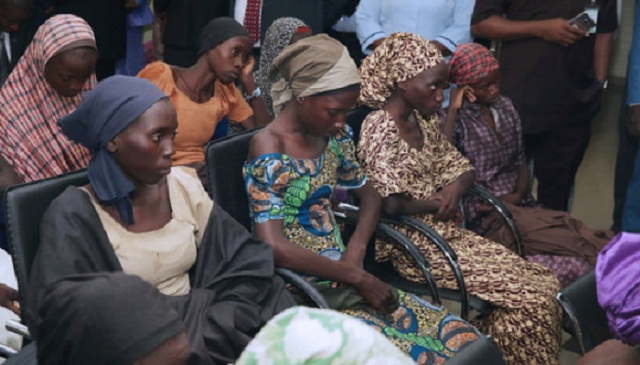
Abuja, Nigeria | AFP | More than 100 schoolgirls kidnapped by Boko Haram were in Nigeria’s capital on Thursday, a day after their surprise release that fuelled rumours about how their freedom was won.
A total of 104 of the 110 students seized from the school in Dapchi, in the northeastern state of Yobe, on February 19 were dropped off by the Islamist militants on Wednesday morning.
The girls — many of them dressed in matching fawn-coloured long hijabs — boarded a Nigerian military transport plane from the Borno state capital Maiduguri to Abuja on Wednesday night.
In the capital, they were expected to meet President Muhammadu Buhari as well as undergo medical checks and counselling similar to other former captives released by the group.
Five girls are said to have died in the initial stages of the kidnapping, while one girl — the only Christian — is still being held until she converts to Islam.
The Dapchi kidnapping revived painful memories in Nigeria of the April 2014 abduction of 219 schoolgirls from the Borno town of Chibok, which caused global outrage.
Their unexpected release — and the fact the jihadists were able to come and go unchallenged — dominated newspapers on Thursday, with many questioning whether a deal was done.
But Nigeria’s Information Minister Lai Mohammed said: “It is not true that we paid (a) ransom… neither was there a prisoner swap to secure their release.
“What happened was that the abduction itself was a breach of the ceasefire talks between the insurgents and the government, hence it became a moral burden on the abductors.
“Any report that we paid ransom or engaged in prisoner swap is false.”
– Schools shut –
Security analysts have suggested previous ransom payments from the government as part of prisoner swap deals for some of the Chibok hostages may have been the motive for Dapchi.
But Boko Haram’s ability to again seize so many students put security at schools in the restive region under the spotlight, after promises of improvements after Chibok.
The jihadists have repeatedly targeted schools teaching a so-called Western education in the mainly Muslim region as part of their insurgency that has killed at least 20,000 since 2009.
According to the UN children’s agency UNICEF, more than 2,296 teachers have been killed and some 1,400 schools destroyed in the wider northeast.
 The Independent Uganda: You get the Truth we Pay the Price
The Independent Uganda: You get the Truth we Pay the Price


